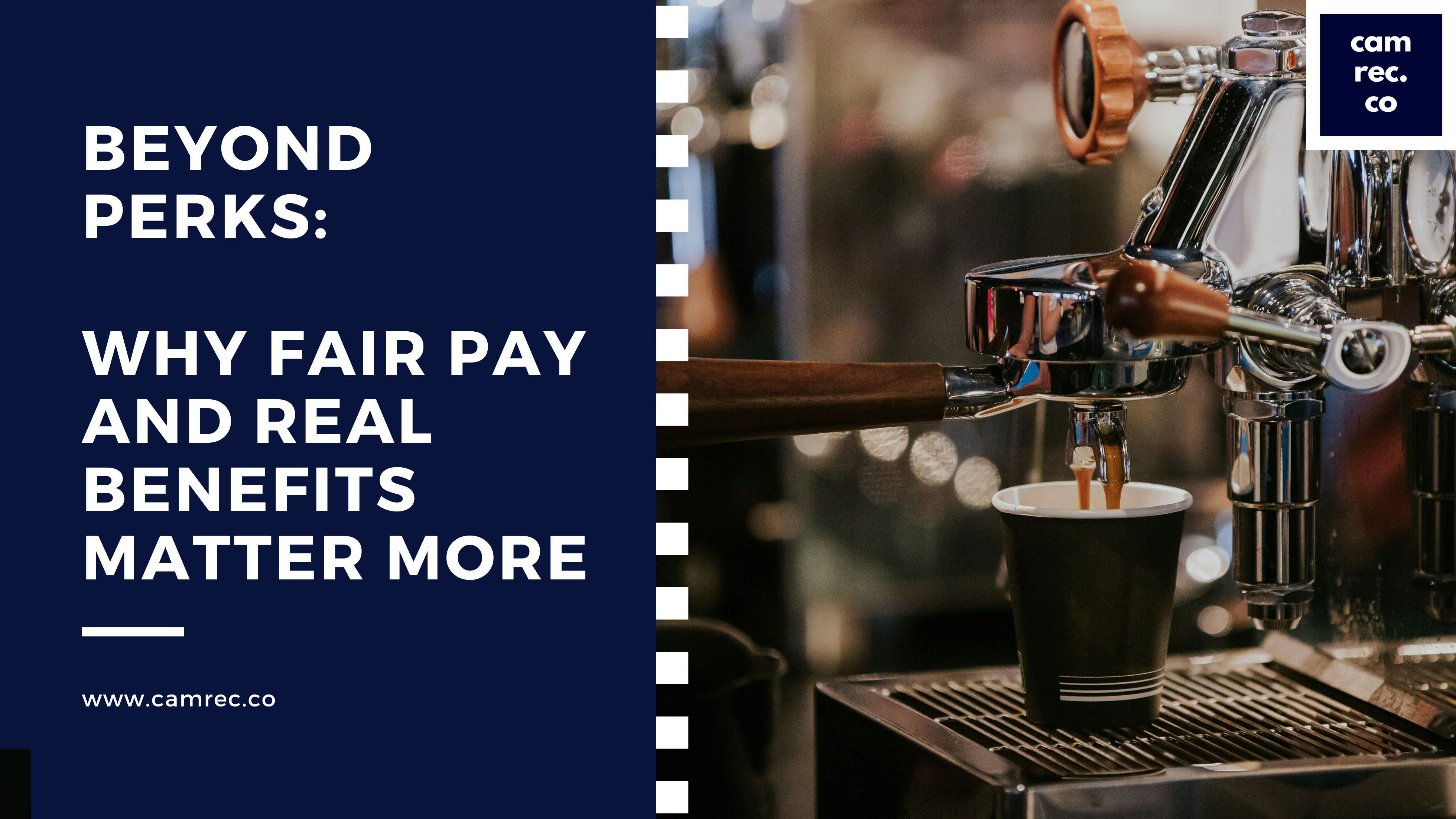Beyond Perks: Why Fair Pay and Real Benefits Matter More
Many companies offer trendy workplace perks to attract and retain talent, free lunches, office games, and relaxed dress codes are just a few examples. While these can create a more enjoyable work environment, they don’t always address what employees truly need. At the end of the day, free coffee won’t pay the bills.
The Rise of Workplace Perks
Businesses have introduced everything from on-site gyms to pet-friendly offices in an attempt to boost morale. These benefits can make a workplace more appealing, but they don’t always provide long-term financial security. An employee may enjoy free snacks, but if they’re struggling with rent or household costs, these perks lose their impact.
The Value of Fair Pay
Competitive salaries are essential for employee satisfaction and motivation. When people feel they’re being paid fairly, they are more engaged and committed to their roles. A good salary doesn’t just cover basic living expenses—it provides stability, reduces stress, and allows employees to plan for the future.
Practical Incentives That Make a Difference
Beyond base salaries, meaningful benefits like performance bonuses, private healthcare, pension contributions, and professional development opportunities have a lasting impact. A strong benefits package reassures employees that their employer is invested in their well-being. Practical incentives, such as flexible working arrangements and enhanced parental leave, also support employees in balancing work and life.
The Link Between Fair Pay and Retention
When employees feel valued and fairly compensated, they are more likely to stay with a company. This reduces staff turnover, which in turn cuts recruitment costs and helps maintain a stable, experienced workforce. Happy employees are also more productive and engaged, contributing to a stronger business overall.
Shifting the Focus to Meaningful Rewards
Employers should regularly review salary structures, ensuring they align with industry standards and the rising cost of living. Listening to employee feedback on benefits and rewards can help tailor packages to meet real needs. While fun perks can improve workplace culture, they should never be a substitute for fair pay and genuine financial security.
Ultimately, companies that prioritise fair salaries and practical incentives over superficial perks create a more motivated, loyal, and productive workforce. The best reward isn’t a freebie—it’s knowing your hard work is recognised and fairly compensated.

